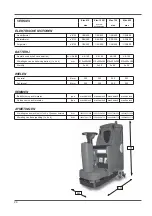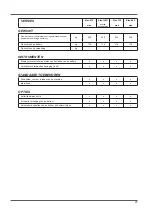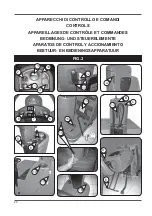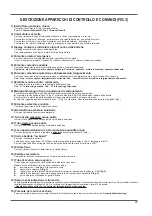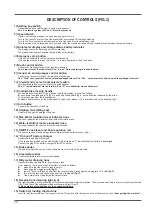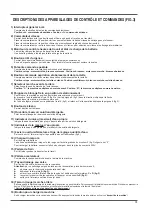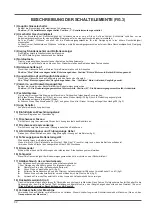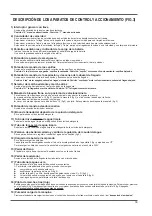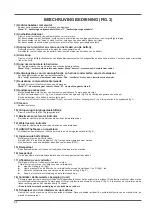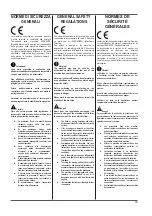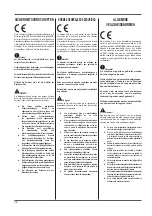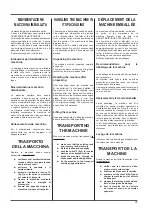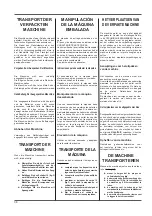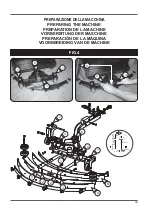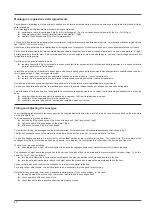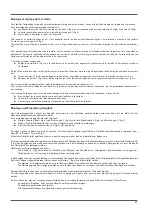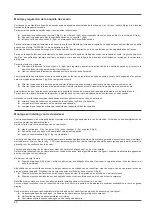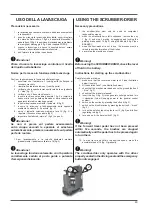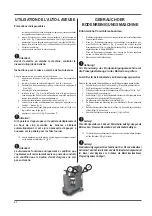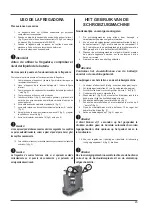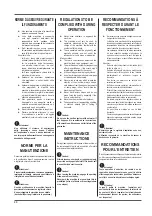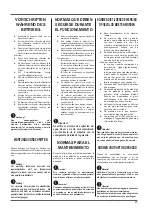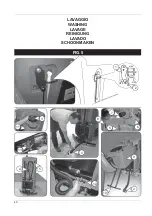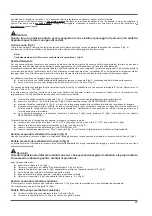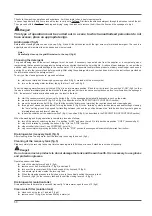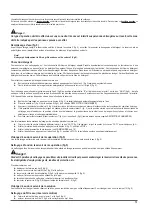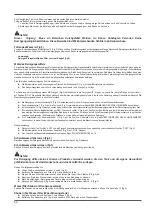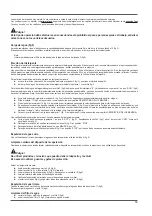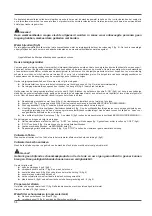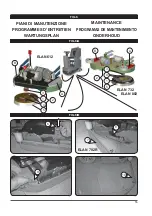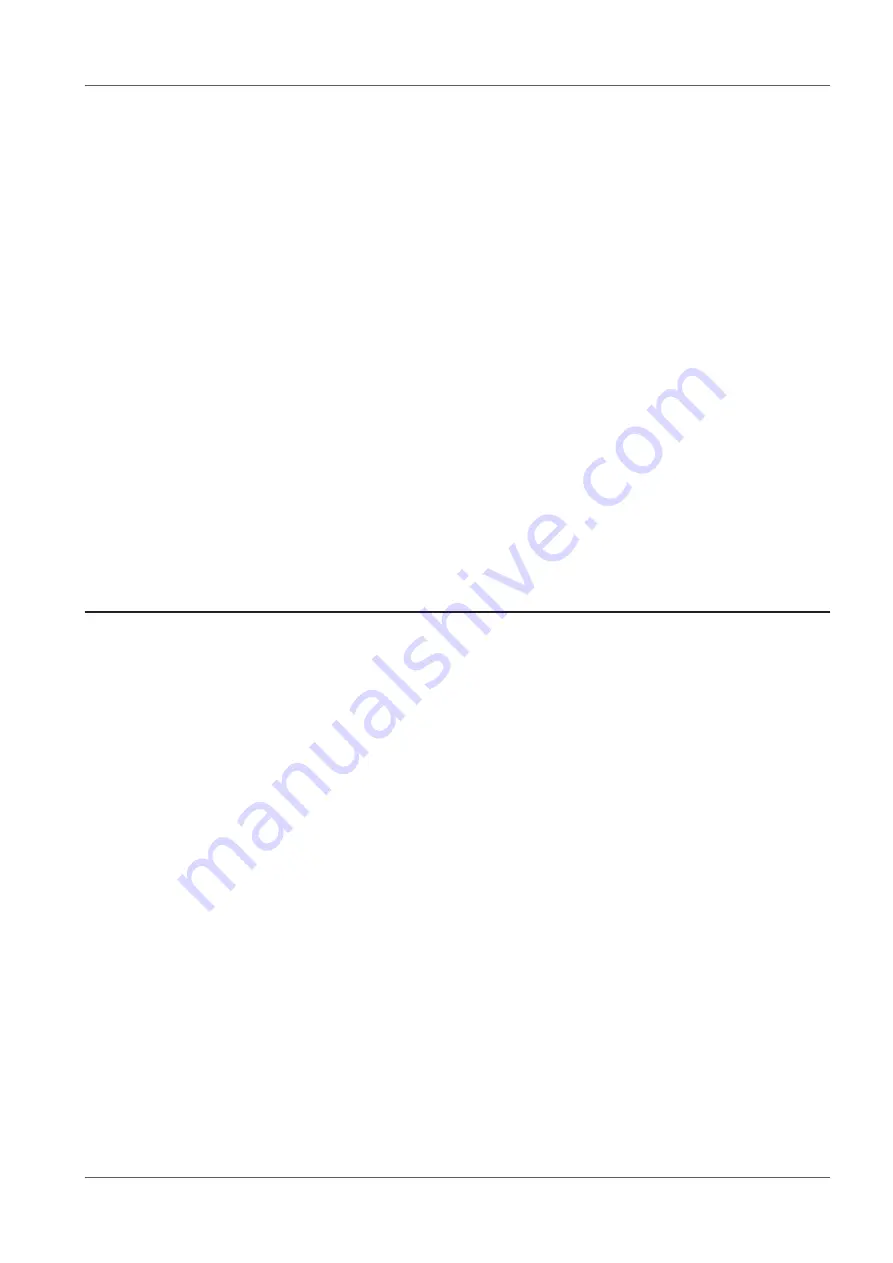
40
Montaggio e regolazione del tergipavimento
Per esigenze d’imballaggio il tergipavimento potrebbe venir fornito smontato dalla macchina e dovrà essere applicato alla piastra di traino
sulla lavasciuga.
Per il montaggio del tergipavimento procedere nel seguente modo:
►
posizionare i perni di centraggio 2 (
fi
g.4) e i fori di
fi
ssaggio 3 (
fi
g.4) in corrispondenza dei pomelli 4 (
fi
g.4) e i fori 5 (
fi
g.4).
►
stringere i pomelli per
fi
ssare il tergipavimento alla piastra 1 (
fi
g.4).
►
montare il tubo aspirazione 8 (
fi
g.4) sul tergipavimento.
Per una perfetta asciugatura del pavimento é essenziale che il tergipavimento venga perfettamente regolato. La lavasciuga utilizza un tergipavimento
tipo “CURVO”, come si vede in
fi
g.4
Questo tipo di tergipavimento ha la caratteristica di raccogliere bene l’acqua verso il tubo di aspirazione, peró é sensibile al parallelismo col terreno.
Per un buon funzionamento del tergipavimento bisogna cercare l’angolo di lavoro ideale rispetto al pavimento. La gomma posteriore “A” (
fi
g.4)
del tergipavimento deve lavorare il più verticale possibile e sul suo spigolo, come si vede dalla
fi
gura, così che i liquidi vengano raccolti dal
lato anteriore della gomma.
Per ottenere ciò agire nel seguente modo:
►
regolare il pomello 6 (
fi
g.4) ruotandolo in senso orario (avvitare) per aumentare l’inclinazione del tergipavimento o in senso antiorario
(svitare) per diminuire l’inclinazione.
In funzione dei diversi tipi di pavimento da asciugare e dall’usura delle gomme del tergipavimento bisogna regolare la sua altezza da terra, per
far ciò agire sui dadi 7 (
fi
g.4) nel seguente modo:
►
ruotare i dadi in senso orario per aumentare l’altezza da terra e diminuire il carico sul pavimento.
►
ruotare i dadi in senso antiorario per diminuire l’altezza da terra ed aumentare il carico sul pavimento.
Gli stessi dadi servono anche per regolare il tergipavimento in modo tale che lavori parallelamente al pavimento.
Per una buona durata delle gomme, la pressione deve essere la minima indispensabile, pur ottenendo una buona asciugatura.
Fare attenzione al fatto che, spesso, l’asciugatura viene in
fl
uenzata negativamente da un cattivo funzionamento dell’aspirazione e, in questo
caso:
►
pulire perfettamente le tubazioni di aspirazione, gli ingressi, i
fi
ltri ed il tergipavimento stesso.
►
controllare il funzionamento del motore aspirazione.
►
controllare che tutte le aperture d’ispezione del serbatoio siano ben chiuse.
Fitting and adjusting the squeegee
To suit packaging requirements, the squeegee may be supplied dismantled from the machine, in which case it must be
fi
tted on the drive plate
on the scrubber-drier.
To
fi
t the squeegee, proceed as follows:
►
set the pins 2 (
fi
g.4) and holes 3 (
fi
g.4) under the knobs 4 (
fi
g.4) and holes 5 (
fi
g.4)
►
tighten knobs to
fi
t the squeegee on the plate 1 (
fi
g.4).
►
fi
t the vacuum hose 8 (
fi
g.4) on squeegee.
For perfect
fl
oor drying, the squeegee must be properly adjusted.
fl
oor-washer uses a Rounded-shaped squeegee as shown in
fi
g. 4.
This type of squeegee conveys the water effectively towards the suction pipe, but it must be parallel to the
fl
oor.
For good squeegee operation, it is important to set the ideal working angle in relation to the
fl
oor. The rubber strip “A” on the back of the
squeegee must work vertical and on its edge, as shown in the diagram, so that the liquid is collected on the front edge of the strip.
To obtain this, proceed as follows:
►
adjusting the knob 6 (
fi
g.4) clockwise (tighten) to increase the squeegee angle or anti-clockwise (unscrew) to reduce the angle.
The squeegee’s height above the ground has to be set to suit the type of
fl
oor to be dried and the level of wear of its rubber strips. To do this,
adjust the nuts 7 (
fi
g.4) as follows:
►
turn the nuts clockwise to increase the height above the ground and reduce the pressure applied to the
fl
oor
►
turn the nuts anti-clockwise to reduce the height above the ground and increase the pressure applied to the
fl
oor.
These nuts are also used to adjust the squeegee so that it works parallel to the
fl
oor.
For a long rubber strip lifetime, use as little pressure as is necessary to give a good level of drying.
Note that often poor drying is caused by inadequate performance of the suction system. In this case:
►
thoroughly clean the suction lines, the intakes, the
fi
lters and the squeegee itself;
►
check operation of the suction motors;
►
check that all the tank inspection openings are properly closed.
Summary of Contents for Elan 612
Page 98: ...98 ...

